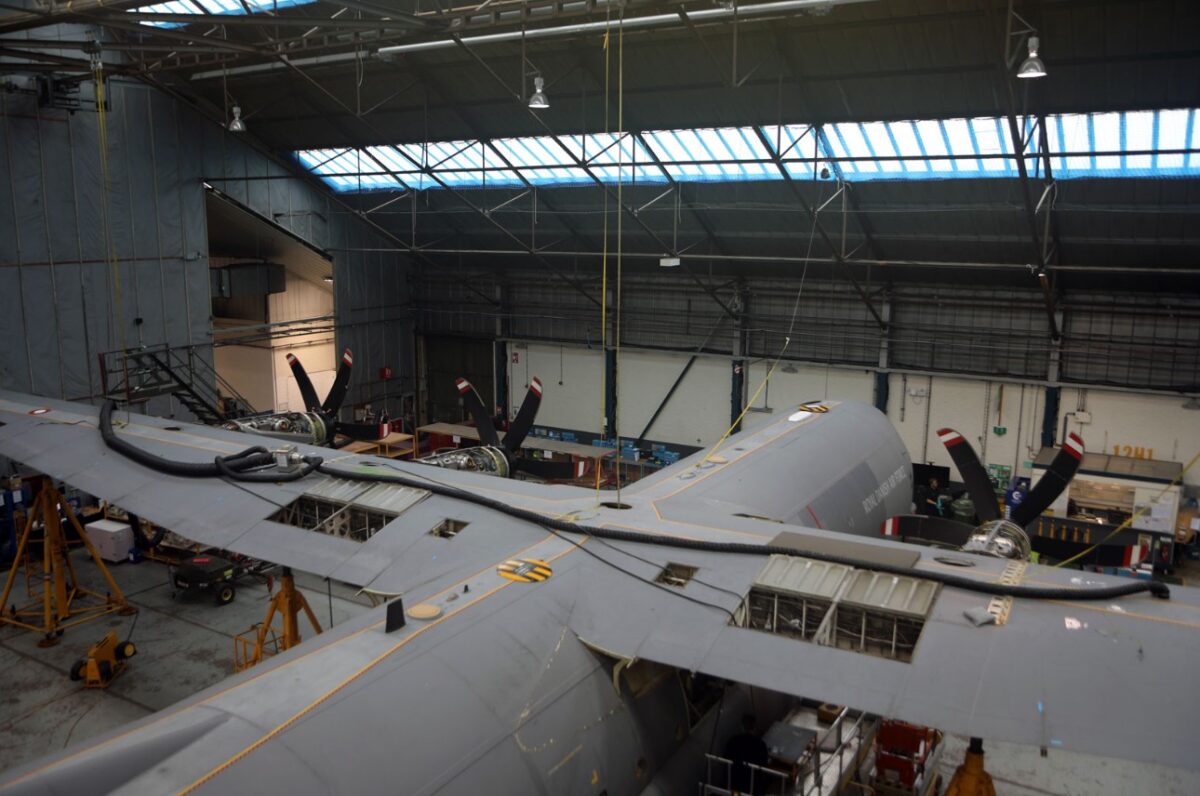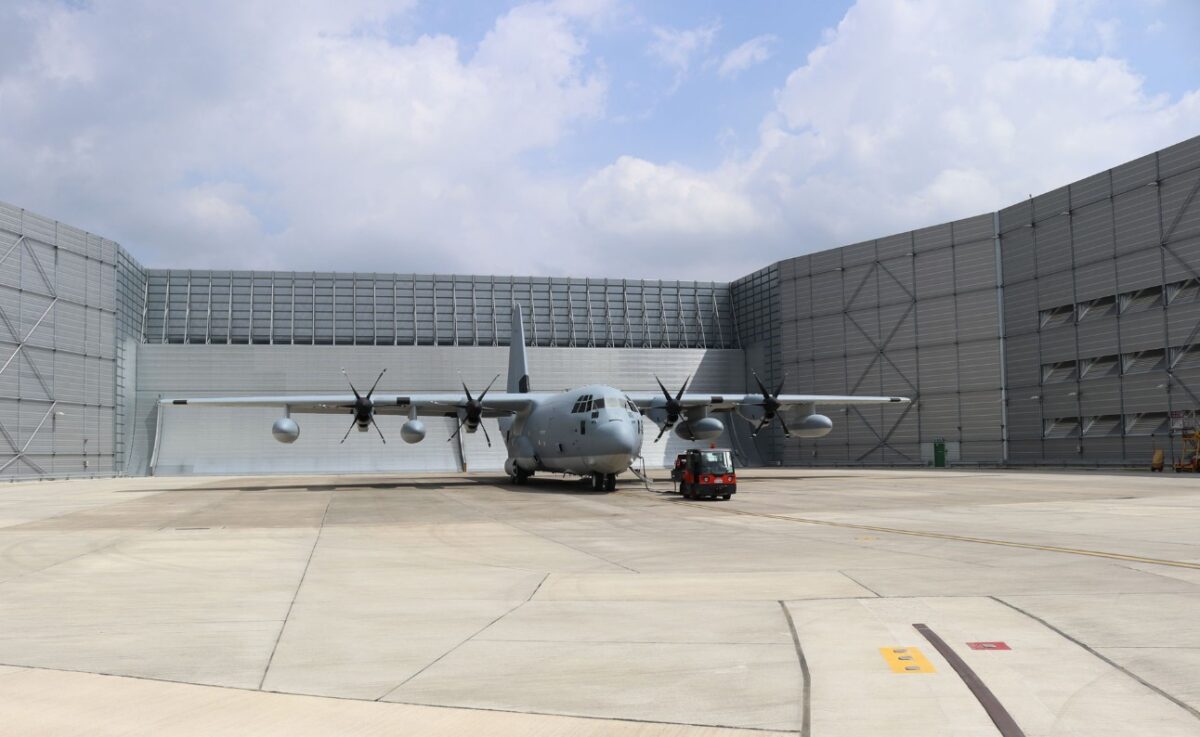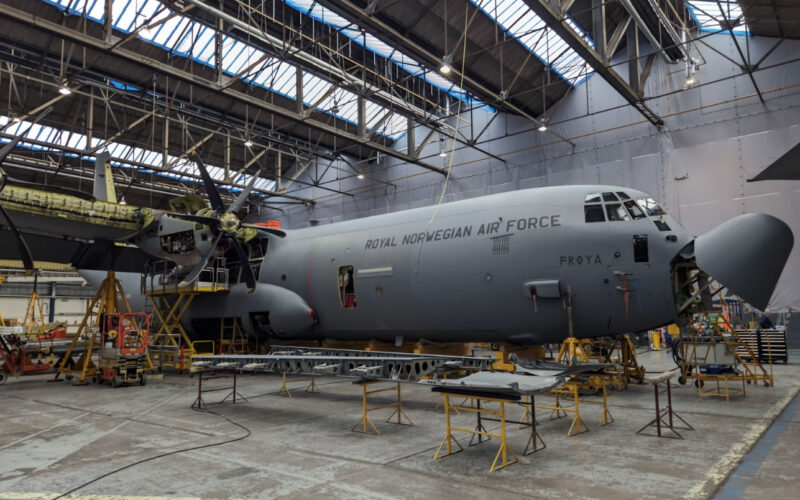Marshall Aerospace has announced contract extensions to continue providing maintenance, repair, and overhaul (MRO) services for eight Lockheed Martin C-130J aircraft operated by the Royal Danish Air Force (RDAF) and the Royal Norwegian Air Force (RNoAF). Through the contract extensions, the specialist MRO provider based at Cambridge Airport (CBG) in the UK will continue to build on two of its longest-standing C-130 MRO relationships, having first partnered with the air forces of Norway in 1977 and Denmark in 1986.
The two air forces currently operate four C-130J aircraft each, and the eight aircraft have collectively been supported since 2012 under a collaborative procurement process involving the defense logistic departments of the Danish and Norwegian armed forces. The latest agreement will add two years to the current contract period, with options for further extension possible, according to a spokesperson for Marshall Aerospace.
“We are delighted to extend our support for both the Royal Danish Air Force and Royal Norwegian Air Force,” said Chris Dare, MRO Services and Solutions Director at Marshall Aerospace. “We will continue to cultivate these long-standing relationships, working with the evolving needs of both customers as we provide high-quality, low-risk depth maintenance with industry-leading turnaround times.”

According to a company statement, to maximize the operational readiness of all eight Hercules C-130J aircraft supported under the agreement, Marshall will continue to conduct a range of in-depth maintenance tasks on the airplanes, predominantly comprising of C, C2, and D checks, all of which will be carried out at its primary military aircraft maintenance facility at Cambridge Airport which is also owned and operated by the Marshall Group of companies.
The statement adds that the RDAF fleet plays “a vital role in Danish foreign and domestic politics, supporting Danish troops around the world as well as the outposts in the Arctic region ranging up to Greenland’s Station Nord, roughly 600 miles (960km) from the North Pole.” Similarly, the four RNoAF aircraft support a multitude of tactical mission requirements including personnel and equipment transport, humanitarian operations, medical airlift, special operations, cold weather operations, and natural disaster relief at various locations worldwide.
Marshall Aerospace first became a Lockheed-approved official technical service center for C-130 transport and general utility aircraft in 1975, although even before that, the company was appointed as the Royal Air Force’s (RAF) only approved service center for its fleet of Hercules transporters in 1966.

In 1994, Marshall assisted Lockheed with the development and testing of the next-generation C-130J Super Hercules, modifying a loaned RAF C-130K to accommodate the model’s new turboprop engine, lengthened fuselage and six-bladed propeller system. Nearly 400 new sensors were also fitted to the aircraft, and Marshall completed a full flight test program.
This extensive engineering project further solidified the relationship with Lockheed and paved the way for the production of a new generation of Hercules aircraft, of which the eight C-130Js operated by the RDAF and RNoAF are just eight. Nowadays, C-130Js operated by many of the world’s air forces are regular visitors to its Cambridge Airport facility, which is set to move to a new site at Cranfield Airport in Bedfordshire towards the end of this decade.
Indeed, in 2020, the company was awarded a unique contract to overhaul and repaint the C-130 support aircraft operated by the US Marines’ Blue Angels aerial display team. The plane, nicknamed ‘Fat Albert’ was rolled out in its striking blue, white, and yellow paint scheme following its time in the Marshall Aerospace hangar in Cambridge.
Concluding the company statement, Marshall states it has “established an unmatched reputation for delivering high-quality MRO services and solutions for customers around the world, having built unrivaled experience on the C-130 platform since 1966.”

